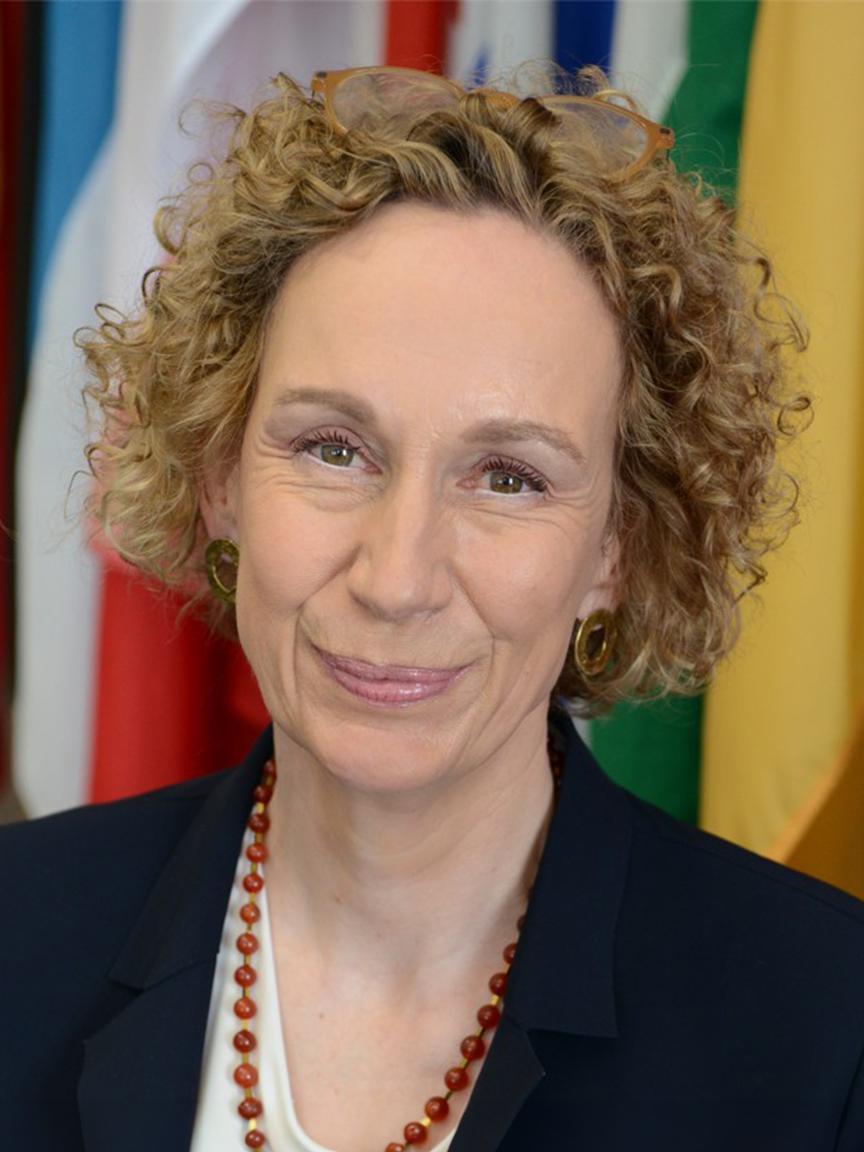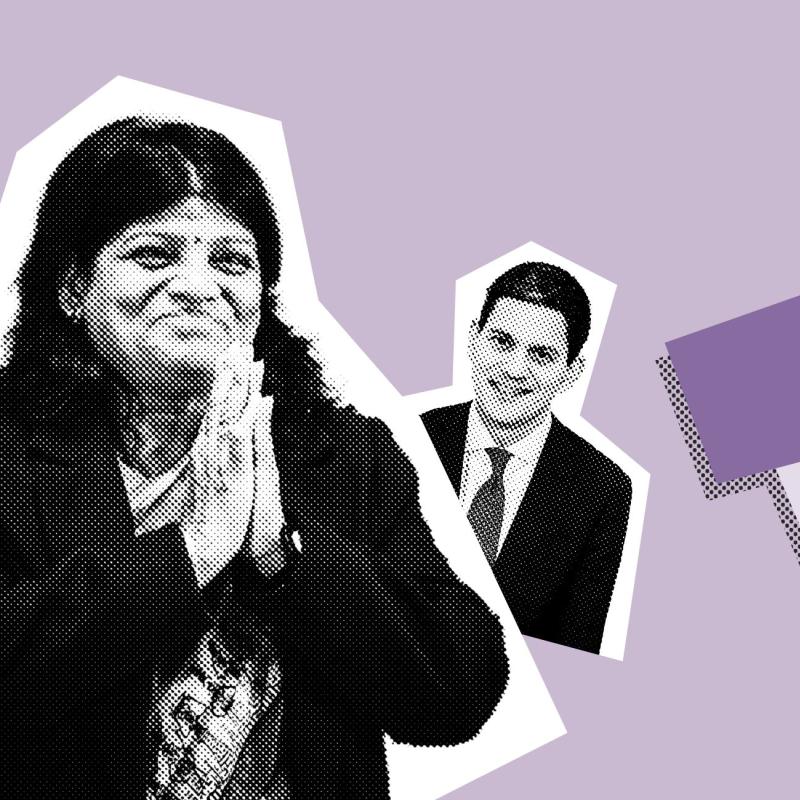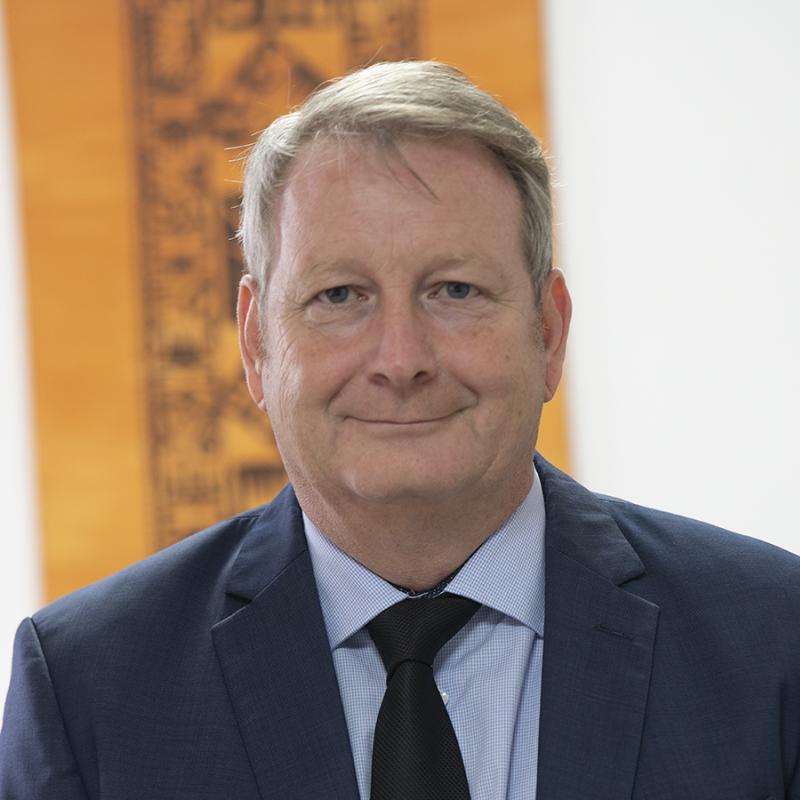 stock.adobe.com/melita
stock.adobe.com/melita
Feminist foreign policy: a glimpse behind the scenes
Special Envoy Gesa Bräutigam on the development and importance of feminist foreign policy
A year ago, on 1 March 2023, Federal Foreign Minister Annalena Baerbock presented the Guidelines for Feminist Foreign Policy. Feminist foreign policy is not a new field of foreign policy activity for us. Rather, we want to consistently consider and prioritise women and marginalised groups in all areas of our foreign policy – from crisis management and our legal and consular work through to foreign trade and investment policy.
Our feminist foreign policy aims to contribute to the advancement of gender equality worldwide by identifying entrenched power structures and promoting equitable participation. Specifically, we seek to strengthen the rights, resources and representation of women and marginalised groups through a pragmatic policy approach. Gender equality makes states and societies more peaceful, stable and economically successful.
Feminist foreign policy goes well beyond promoting gender equality. We work to support all those who are discriminated against because of their gender identity, origin, religion or sexual orientation, or other reasons. After all, depending on the context, marginalisation can affect anyone.
For the Federal Foreign Office to be able to represent feminist foreign policy abroad credibly, we also need to do our homework. To adapt our internal processes and structures accordingly and to further develop feminist foreign policy with our international partners, I was appointed Special Envoy for Feminist Foreign Policy in August 2023. A crucially important dimension of this is the distribution of resources. The Federal Foreign Office now applies gender budgeting to all of its project finances. For every euro we spend on projects, we ask ourselves – are we doing enough for gender equality? Overall, we aim to allocate 85% of our funds to projects that have gender equality as an objective, and 8% to projects that promote gender equality as their main focus.
In Ukraine, for example, we have provided EUR 900 million in humanitarian assistance through organisations such as the Red Cross and UNICEF since Russia’s war of aggression began in 2022 and have provided targeted support to projects that assist survivors of sexual and gender-based violence (SGBV). Furthermore, we have taken action against impunity by working to initiate a formal investigation at the International Criminal Court into Russian war crimes, which often specifically target women through sexual violence.
Rape as a systematic weapon of war is widespread – from Rwanda and Srebrenica to the 7 October Hamas attacks on Israel and the crimes against women and girls committed by Russian troops in Ukraine. In Sudan, too, mass rape is being used as a systematic weapon. Precisely because women and girls in Sudan were the driving force behind the protests for democracy and peace five years ago, women and girls in Sudan are particularly at risk today. Feminist foreign policy is not a feel-good topic, it is a rigorous security policy that addresses harsh realities.
 Auswärtiges Amt
Auswärtiges Amt
Gesa Bräutigam, Special Envoy for Feminist Foreign Policy and Director for Human Rights at the German Federal Foreign Office
Feminist foreign policy is not a feel-good topic, it is a rigorous security policy that addresses harsh realities.
Rape as a systematic weapon of war is widespread – from Rwanda and Srebrenica to the 7 October Hamas attacks on Israel and the crimes against women and girls committed by Russian troops in Ukraine. In Sudan, too, mass rape is being used as a systematic weapon. Precisely because women and girls in Sudan were the driving force behind the protests for democracy and peace five years ago, women and girls in Sudan are particularly at risk today. Feminist foreign policy is not a feel-good topic, it is a rigorous security policy that addresses harsh realities.
Feminist foreign policy cannot be shaped in a vacuum. We therefore work closely with other federal ministries, like the Federal Ministry for Economic Cooperation and Development. For example, this is reflected in the interplay between the Guidelines for Feminist Foreign Policy and the Feminist Development Policy, which were jointly published in March 2023. At the 2023 UN Commission on the Status of Women, we liaised closely with the Federal Ministry for Economic Cooperation and Development and the Federal Ministry for Family Affairs, Senior Citizens, Women and Youth to negotiate agreed conclusions on digitalisation and equality, which set an important precedent for women’s digital rights. We are striving for similar success at this year’s Commission, which will focus on women in poverty.
There is a worldwide pushback against women’s rights. Afghanistan and Iran are the two most glaring examples of systematic discrimination against women. In many places, the rights of LGBTQI+ people are being challenged. Globally, a third of all women over the age of 15 have experienced physical and/or sexual and gender-based violence – as well as almost all LGBTQI+ people. In crisis situations, feminist foreign policy is therefore not merely something that is ‘nice to have’. On the contrary, it is crucial, because marginalised groups are particularly at risk. In such situations, feminist foreign policy asks which groups are particularly vulnerable and how they can be supported. How can we ensure that they are empowered, rather than being seen as victims?
It is important to note that there is no one-size-fits-all solution for crises. Those directly affected and local civil society are often best placed to answer such questions. Close dialogue with these actors is therefore always a priority when implementing projects.
Feminist foreign policy is not a magic cure for all problems and crises worldwide. However, we are seeing initial success – within the Federal Foreign Office, in our cooperation with other federal ministries and with partners worldwide; feminist foreign policy consistently creates added value for those affected by marginalisation.


